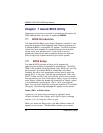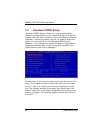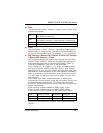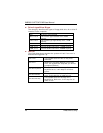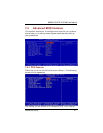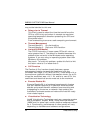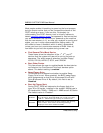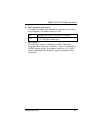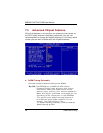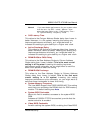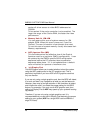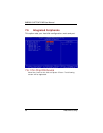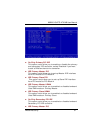
IMB200 LGA775 ATX MB User Manual
Award BIOS Utility
44
Most people enable this setting to speed up the boot process,
but you should realize that you do increase the chance of the
POST missing an error if you use this. Fortunately (or
unfortunately) the POST memory test is virtually useless to
detect
transient memory errors (as opposed to hard errors that
you would discover the first time you powered up the machine
with the new memory in it), so once your system is running and
stable, you can in most cases enable this setting safely. It's
still safest to leave it disabled, which is what I recommend
unless you have truly monstrous amounts of RAM. After all,
how often do you boot the system during normal use.
z
First/Second/Third Boot Device
These items allow the selection of the 1
st
, 2
nd
, and 3
rd
devices that the system will search for during its boot-up
sequence. The wide range of selection includes Floppy,
LS120, ZIP100, HDD0~3, SCSI, and CDROM.
z Boot Other Device
This item allows the user to enable/disable the boot device
not listed on the First/Second/Third boot devices option
above. The default setting is enabled.
z Swap Floppy Drive
This allows you to determine whether to enable Swap
Floppy Drive or not. When enabled, the BIOS swap floppy
drive assignments so that Drive A becomes Drive B and
Drive B become Drive A. By default, this field is set to
Disabled.
z Boot Up Floppy Seek
During POST, BIOS will determine the floppy disk drive
type, 40 or 80 tracks, installed in the system. 360Kb type is
40 tracks while 720Kb, 1.2MB and 1.44MB are all 80 tracks.
The default value is “Enabled”.
Enabled
BIOS searches for floppy disk drive to determine if it is
40 or 80 tracks. Note that BIOS can not tell from 720K,
1.2M or 1.44M drives type as they are all 80 tracks.
Disabled
BIOS will not search for the type of floppy disk drive by
track number. There will be no warning message
displayed if the drive installed is 360K.



